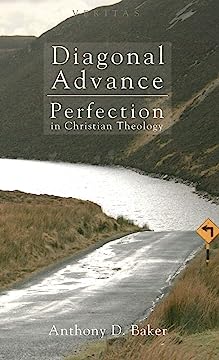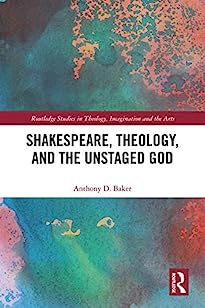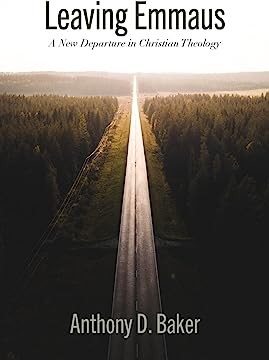
Diagonal Advance (Veritas)
By Anthony D. Baker
Diagonal Advance argues for a radical revision of Christian thinking about the purpose of human life. Perfection is neither a vertical drop from the divine, nor a horizontal progression through social and personal development. Rather, it is a diagonal advance into the divine perfections through the perfecting of material culture. This vision is, the author argues, in line with the account of human ends that emerges from the Greek and Hebrew background, in the New Testament and in the classical Christian era. When the late medieval and early modern writers of theology and literature begin to name the problem differently, the classical vision is distorted, so that human perfecting and the divine perfections have little to do with one another.
Leaving Emmaus: A New Departure in Christian Theology
By Anthony D. Baker
The theological enterprise in the West finds itself in a critical moment. Traditional models have failed to supply the church with the proper tools for engaging the hard, persistent realities of injustice. This is primarily because the models propose a language of faith that does not begin from the part of life where faith begins: namely, the testimonies we encounter along the way.
Leaving Emmaus conceives of theology as “thinking with testimonies of Christian faith,” offering new students and seasoned practitioners alike a “new departure” for Christian discourse. The book restructures the sources of theology (Scripture, tradition, reason, experience) to make space for the integration of new voices alongside a thoughtful reading of Scripture and classic texts of the tradition.

Shakespeare, Theology, and the Unstaged God
(Routledge Studies in Theology, Imagination and the Arts)
While many scholars in Shakespeare and Religious Studies assume a secularist viewpoint in their interpretation of Shakespeare’s works, there are others that allow for a theologically coherent reading. Located within the turn to religion in Shakespeare studies, this book goes beyond the claim that Shakespeare simply made artistic use of religious material in his drama. It argues that his plays inhabit a complex and rich theological atmosphere, individually, by genre and as a body of work.
